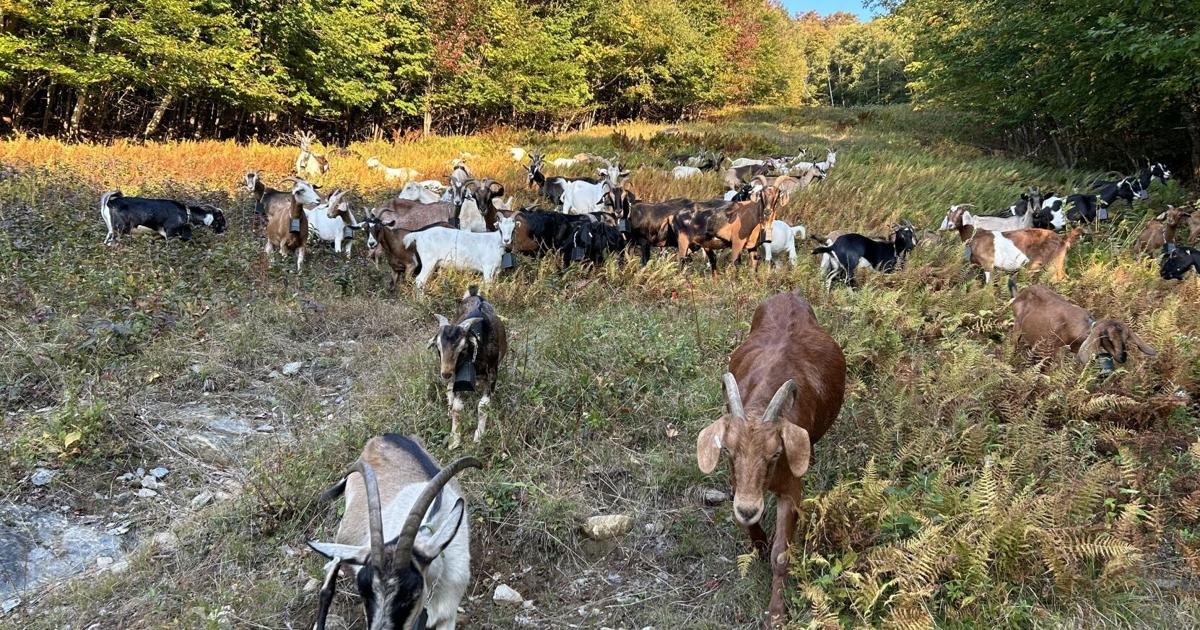Grazing Innovation: Goats Take to the Slopes at Magic Mountain
In a unique blend of agriculture and technology, goats have been grazing at Magic Mountain Ski Area in Londonderry, Vermont, for the past month, tackling areas that are challenging or impossible to mow. This innovative approach is spearheaded by Aimee Braxmeier, the owner of Slippery Slope Goats LLC, who is on a mission to expand the use of her goats to more ski resorts, utilizing cutting-edge collar technology that creates virtual pastures.
The Birth of a Business
Braxmeier’s journey into goat grazing began in 2020 after she managed a goat dairy farm in Vermont. She frequently received requests from homeowners wanting goats to graze their properties, which sparked the idea for her business. "I was like, I think we’re onto something here, so I quit my job," she recalled. With a background in the ski industry, having worked as a lift operations manager at Stratton Mountain Resort, Braxmeier’s return to grazing feels like a full-circle moment.
The Technology Behind Virtual Pastures
The innovative collar technology, developed in Norway, allows Braxmeier to create virtual pastures using an app on her phone. Each collar is equipped with a SIM card, solar panels, and a battery, enabling her to track the goats’ locations and monitor their activity. "Each collar has a solar panel on each side, a battery," she explained. This technology has drastically reduced the labor involved in managing the goats, allowing them to graze in areas that would otherwise require extensive manual labor.
Braxmeier’s pilot project, in collaboration with the Agritech Institute for Small Farms, has proven successful. She began with a herd of 30 pregnant goats, which quickly multiplied to 150, showcasing the rapid growth of her business. The collars emit a series of tones to warn the goats as they approach the boundaries of their grazing area, with a mild electric zap serving as a deterrent to leaving the designated pasture.
The Benefits of Grazing
The benefits of using goats for vegetation management are manifold. Not only do they clear invasive plants effectively, but they also provide an environmentally friendly alternative to traditional mowing methods. Paul Maitland, general manager at Magic Mountain, expressed enthusiasm for the project, noting that it helps reduce carbon emissions associated with gas-powered equipment.
Braxmeier’s collaboration with the Vermont Farm & Forest Viability Program is helping her develop a sustainable business plan. She recognizes the need to charge customers for grazing services to cover transportation and winter feed costs. As she expands her operations, she hopes to hire interns and employees to assist with the growing herd.
Challenges and Future Prospects
While the collar technology has shown great promise, it is not without challenges. The reliance on cellular service means that areas with inadequate coverage may face limitations. However, Dan Smith, executive director of the Agritech Institute, remains optimistic about the potential of this technology. "It’s a potential gamechanger," he stated, emphasizing the environmental benefits of reducing carbon emissions from traditional land management practices.
Smith is actively seeking additional funding to extend the project and explore other innovative agricultural technologies, such as using seaweed to reduce methane emissions and robotics to assist small-scale dairy operations.
Conclusion
Braxmeier’s initiative at Magic Mountain Ski Area represents a pioneering approach to land management that combines traditional farming with modern technology. As she continues to develop her business and expand her goat grazing services, the potential for this innovative model to transform how we manage vegetation in challenging landscapes is immense. With the support of local organizations and the growing interest in sustainable practices, the future looks bright for Slippery Slope Goats and the goats that are redefining grazing in Vermont.


